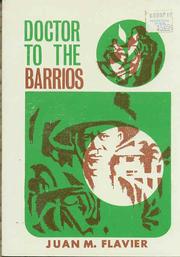Doctor to the Barrios
Doctor to the Barrios is a distinctive program initiated by the Philippines' Department of Health aimed at addressing the shortage of doctors in rural and underserved areas of the country. The program recruits young physicians and deploys them to these areas to provide medical services that are otherwise unavailable or difficult to access for the local population. This initiative not only aims to improve healthcare accessibility but also to enhance the quality of healthcare services in remote regions of the Philippines.
Overview[edit | edit source]
The Doctor to the Barrios (DTTB) program was established to ensure that all Filipinos, regardless of their geographical location, have access to quality healthcare services. The program targets communities that are geographically isolated and disadvantaged, often characterized by their limited access to basic healthcare. Doctors who join the DTTB program are assigned to these areas for a period, typically for two years, where they serve not only as primary care providers but also as public health officers. They are tasked with a wide range of responsibilities, from providing clinical care to implementing public health programs and engaging in health promotion activities.
Objectives[edit | edit source]
The main objectives of the Doctor to the Barrios program include:
- To provide underserved communities with access to a doctor, thereby improving their healthcare outcomes.
- To enhance the public health infrastructure in rural and remote areas through the implementation of health programs and initiatives.
- To develop the skills and capabilities of local health workers by providing training and support.
- To raise awareness and educate communities about preventive healthcare and healthy lifestyles.
Challenges[edit | edit source]
Doctors in the DTTB program often face numerous challenges, including but not limited to:
- Limited resources and medical supplies in the areas they are assigned to.
- Geographic isolation, which can hinder access to specialist care and further medical training.
- Cultural and language barriers between the doctors and the local communities they serve.
- The need for significant adaptability and resilience to work under challenging conditions and with limited support.
Impact[edit | edit source]
Despite the challenges, the Doctor to the Barrios program has made significant strides in improving healthcare access and quality in rural areas of the Philippines. It has been instrumental in:
- Reducing the healthcare service gap between urban and rural areas.
- Increasing public health awareness and education in remote communities.
- Strengthening the country's healthcare system by integrating public health and clinical care at the community level.
Future Directions[edit | edit source]
The success of the Doctor to the Barrios program highlights the importance of innovative approaches to healthcare delivery in underserved areas. Future directions may include:
- Expanding the program to cover more areas and include other healthcare professionals such as nurses and midwives.
- Enhancing the support and incentives for doctors participating in the program to ensure sustainability.
- Leveraging technology to overcome geographic barriers and improve healthcare delivery in remote areas.
Search WikiMD
Ad.Tired of being Overweight? Try W8MD's physician weight loss program.
Semaglutide (Ozempic / Wegovy and Tirzepatide (Mounjaro / Zepbound) available.
Advertise on WikiMD
|
WikiMD's Wellness Encyclopedia |
| Let Food Be Thy Medicine Medicine Thy Food - Hippocrates |
Translate this page: - East Asian
中文,
日本,
한국어,
South Asian
हिन्दी,
தமிழ்,
తెలుగు,
Urdu,
ಕನ್ನಡ,
Southeast Asian
Indonesian,
Vietnamese,
Thai,
မြန်မာဘာသာ,
বাংলা
European
español,
Deutsch,
français,
Greek,
português do Brasil,
polski,
română,
русский,
Nederlands,
norsk,
svenska,
suomi,
Italian
Middle Eastern & African
عربى,
Turkish,
Persian,
Hebrew,
Afrikaans,
isiZulu,
Kiswahili,
Other
Bulgarian,
Hungarian,
Czech,
Swedish,
മലയാളം,
मराठी,
ਪੰਜਾਬੀ,
ગુજરાતી,
Portuguese,
Ukrainian
Medical Disclaimer: WikiMD is not a substitute for professional medical advice. The information on WikiMD is provided as an information resource only, may be incorrect, outdated or misleading, and is not to be used or relied on for any diagnostic or treatment purposes. Please consult your health care provider before making any healthcare decisions or for guidance about a specific medical condition. WikiMD expressly disclaims responsibility, and shall have no liability, for any damages, loss, injury, or liability whatsoever suffered as a result of your reliance on the information contained in this site. By visiting this site you agree to the foregoing terms and conditions, which may from time to time be changed or supplemented by WikiMD. If you do not agree to the foregoing terms and conditions, you should not enter or use this site. See full disclaimer.
Credits:Most images are courtesy of Wikimedia commons, and templates Wikipedia, licensed under CC BY SA or similar.
Contributors: Prab R. Tumpati, MD

